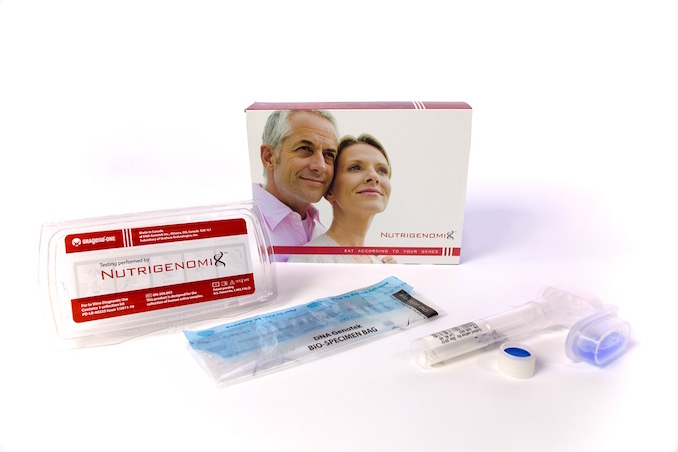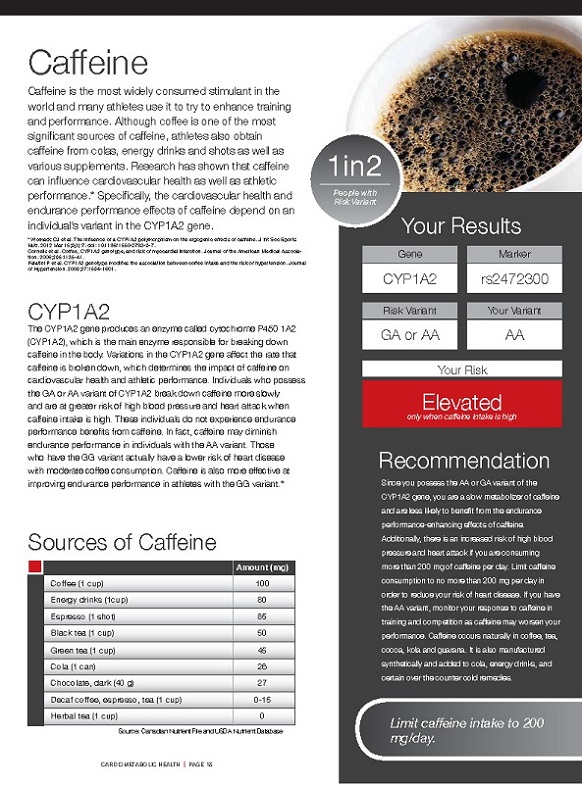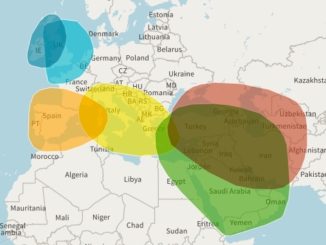A guest post by Nanci S. Guest.
We are well into January and it seems some of us are already seeing great results from our newly adopted diets and fitness routines, while others… not so much. We all know someone who can hit the gym for two weeks and lose 5 lbs or follow a specific diet for a month and drop a dress size. But others may spend months sweating through daily workouts and adhering to a strict diet with less than impressive results. Maybe we aren’t doing what’s right for our body?
While it has long been suspected that genetics play an important role in determining how we respond to foods and nutrients, only recently has research in the emerging field of nutrigenomics been able to demonstrate this scientifically. As a result, there has been an interest in using genetic testing to gain a better understanding of how we can feed our body exactly what it needs for optimal health and fitness.

We are all unique:
Nutrigenomics uses the results of DNA analysis from a simple saliva test to uncover the relationship between genes, nutrition, and health or performance. Research shows that our unique genetic makeup affects the way we absorb, metabolize and utilize nutrients, and how this influences our health. Identifying our personal genetic variations can help to determine individual nutritional requirements, the presence of food intolerances and cravings, and dietary patterns that will help us to improve our health, body composition and sports performance.
Recent research has also shown that DNA-based dietary advice results in improved motivation and better outcomes in response to nutrition counselling. Individuals can now receive, at a reasonable cost (about $400 including a consult), a personalized dietary report based on their genetics to improve their health. Those seeking improved health and wellness or looking to gain a competitive edge in their sport, can order a genetic test either direct-to-consumer or through a healthcare provider. Using a healthcare provider that has received training in genetic testing and nutrition offers the benefit of ensuring that the results are interpreted correctly.
What will a genetic test tell you:
Genetic testing for personalized nutrition focuses on individual vitamin and mineral requirements, your response to nutrients and substances such as lactose, gluten and caffeine, and can also help in identifying the most effective diet for you to achieve your ideal body composition.
A test result for “Caffeine and Heart Health” is shown below:
- Caffeine has been shown to increase the risk of heart attack and hypertension in people with a specific version of a gene called CYP1A2. Some people should limit caffeine intake because they have an elevated risk based on their CYP1A2 gene, which determines the rate at which caffeine is broken down and eliminated from the body. Recent research involving this same gene has also shown that athletes may have improved or worsened sport performance when they consume caffeine.
| Gene | Variant | Risk | Recommendation |
| CYP1A2
|
GA or AA | Elevated | Limit caffeine consumption to 200 mg/day (2 small cups) |
| GG | Typical | Limit caffeine intake to 400 mg per day |

What to look for when choosing a genetic test
- Many consumer genetic tests assess a wide variety of health factors beyond nutrition, so focus on those that emphasize diet rather than disease.
- Seek out a reputable company, preferably one that is actively doing research in this field. Some companies offer tests that misinterpret the science, so a little research can go a long way here.Also look for companies that have a scientific advisory board consisting of experts and credentialed professionals in nutrition and genetics.
- Don’t choose quantity over quality. Choose tests that include only genes that have the highest level of evidence to ensure reliable results. This might not be obvious to someone with little scientific training, which is why it’s best to go with a company that uses trained or certified providers.
One such test is through Nutrigenomix. The University of Toronto start-up biotechnology company was founded in 2012 and now has providers in over 35 countries. There are hundreds of practitioners in the Toronto area that offer Nutrigenomix services, and the cost is typically around $400-450. The company uses state-of-the-art genetic testing procedures to analyze saliva DNA, and the dietary recommendations are based on the most current evidence-based scientific research that has been published in peer-reviewed journals and reviewed by their team of world-renowned experts in the field of nutrigenomics. Visit www.nutrigenomix.com for more.
Nanci S. Guest, MSc, RD, CSCS is a PhD candidate at the University of Toronto where she is conducting research in nutrition, genetics and athletic performance. Ms. Guest is a registered dietitian and personal trainer, and works as an international consultant to amateur and professional athletes. She served as the Head Dietitian for the 2010 Winter Olympics and 2015 Pan Am Games. She is on the scientific advisory board for Nutrigenomix Inc, a University of Toronto affiliated genetic testing company (see below), and she offers nutrigenomics testing through her Toronto-based private practice founded in 1996. Visit her at www.nanciguest.com to learn more.





